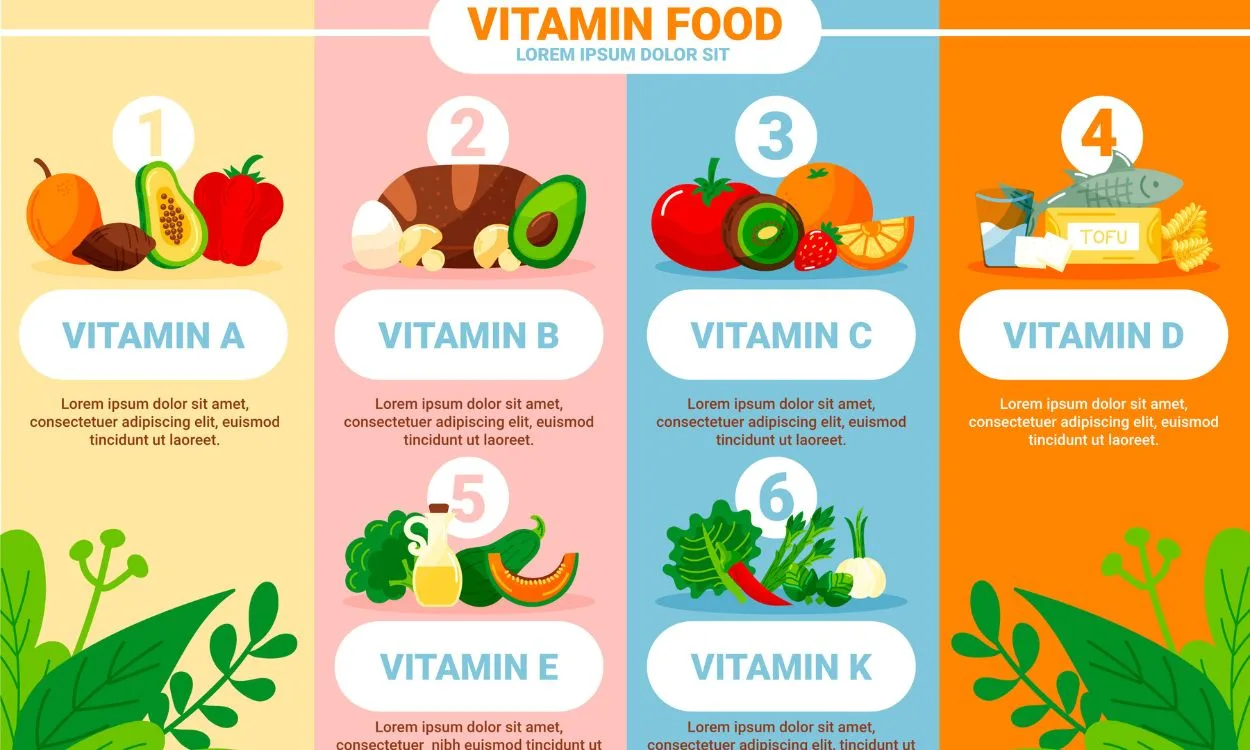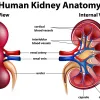Unlock Your Health Potential: The Power of Vitamins and Minerals with Fitpaa
Vitamins and minerals are essential nutrients that our bodies need to function properly. They play a crucial role in maintaining good health and preventing various diseases. While they are both necessary for our overall well-being, they have distinct characteristics and functions. Let’s dive into each of them to understand their importance and how they contribute to our health.
Vitamins
Vitamins are organic compounds that are required in small quantities for various bodily functions. They are classified into two categories: fat-soluble vitamins and water-soluble vitamins.
Fat-soluble vitamins
Fat-soluble vitamins include vitamins A, D, E, and K. These vitamins are soluble in fat and are stored in our body’s fatty tissues. Here’s a breakdown of each fat-soluble vitamin:
- Vitamin A: Vitamin A is essential for good vision, a healthy immune system, and proper cell growth. It also plays a role in maintaining healthy skin and mucous membranes.
- Vitamin D: Known as the sunshine vitamin, vitamin D helps our bodies absorb calcium and phosphorus, which are vital for strong bones and teeth. It also supports immune function.
- Vitamin E: Vitamin E is a powerful antioxidant that protects our cells from damage caused by free radicals. It also helps maintain healthy skin and promotes good blood circulation.
- Vitamin K: Vitamin K is important for blood clotting and bone health. It helps in the synthesis of certain proteins that play a role in clotting factors and bone metabolism.
Water-soluble vitamins
Water-soluble vitamins include vitamins C and the B-complex vitamins (such as B1, B2, B3, B5, B6, B7, B9, and B12). These vitamins are not stored in the body and are excreted through urine. Here’s a breakdown of each water-soluble vitamin:
- Vitamin C: Vitamin C is a potent antioxidant that helps boost the immune system, aids in collagen production for healthy skin, and enhances the absorption of iron.
- B-complex vitamins: The B-complex vitamins are a group of vitamins that play various roles in the body, including energy production, metabolism, nervous system function, and the formation of red blood cells. Each B-vitamin has its specific function and food sources.
Minerals
Minerals are inorganic substances that our bodies need in small amounts to maintain proper bodily functions. They are divided into two categories: major minerals and trace minerals.
Major minerals
Major minerals refer to those minerals that are required in larger quantities by the body. Some of the major minerals include:
- Calcium: Calcium is crucial for strong bones and teeth, as well as muscle function, nerve transmission, and blood clotting.
- Magnesium: Magnesium is involved in various biochemical reactions in the body and plays a role in muscle and nerve function, energy production, and bone health.
- Potassium: Potassium helps maintain proper fluid balance, nerve function, and muscle contractions. It also plays a role in maintaining healthy blood pressure.
- Sodium: Sodium is involved in maintaining fluid balance, nerve function, and muscle contractions. However, excessive sodium intake can contribute to high blood pressure.
Trace minerals
Trace minerals are required in smaller amounts by the body but are still essential for proper functioning. Some examples of trace minerals include:
- Iron: Iron is necessary for the production of hemoglobin, a protein in red blood cells that carries oxygen throughout the body. It also plays a role in energy production and immune function.
- Zinc: Zinc is involved in various enzymatic reactions and plays a role in immune function, wound healing, and DNA synthesis.
- Selenium: Selenium is a powerful antioxidant that helps protect cells from damage and supports a healthy immune system.
- Iodine: Iodine is necessary for the production of thyroid hormones, which regulate metabolism and growth. It is particularly important for proper brain development in infants and children.
The Importance of Vitamins and Minerals
Vitamins and minerals are essential for our bodies to function optimally. They support various bodily processes, including metabolism, energy production, immune function, and the maintenance of healthy bones, teeth, and skin. Deficiencies in vitamins and minerals can lead to a variety of health problems, such as weakened immune system, poor bone health, fatigue, and impaired cognitive function.
Download the Fitpaa App for Personalized Health and Fitness Support
If you’re looking to improve your overall health and fitness, the Fitpaa app can provide you with personalized support and guidance. With a team of experts, including fitness planners, nutritionists, and doctors, Fitpaa offers a comprehensive approach to achieving your health and fitness goals.
By using state-of-the-art technology, Fitpaa helps you optimize your metabolism, create a personalized fitness plan, and track your progress. The app includes features like a virtual workout trainer, diet tracker, performance tracking, and real-time guidance to keep you motivated and on track.
Fitpaa is committed to helping you achieve your health and fitness goals with guaranteed results. Download the Fitpaa app now and embark on your journey to a healthier, fitter, and more fulfilling life.









